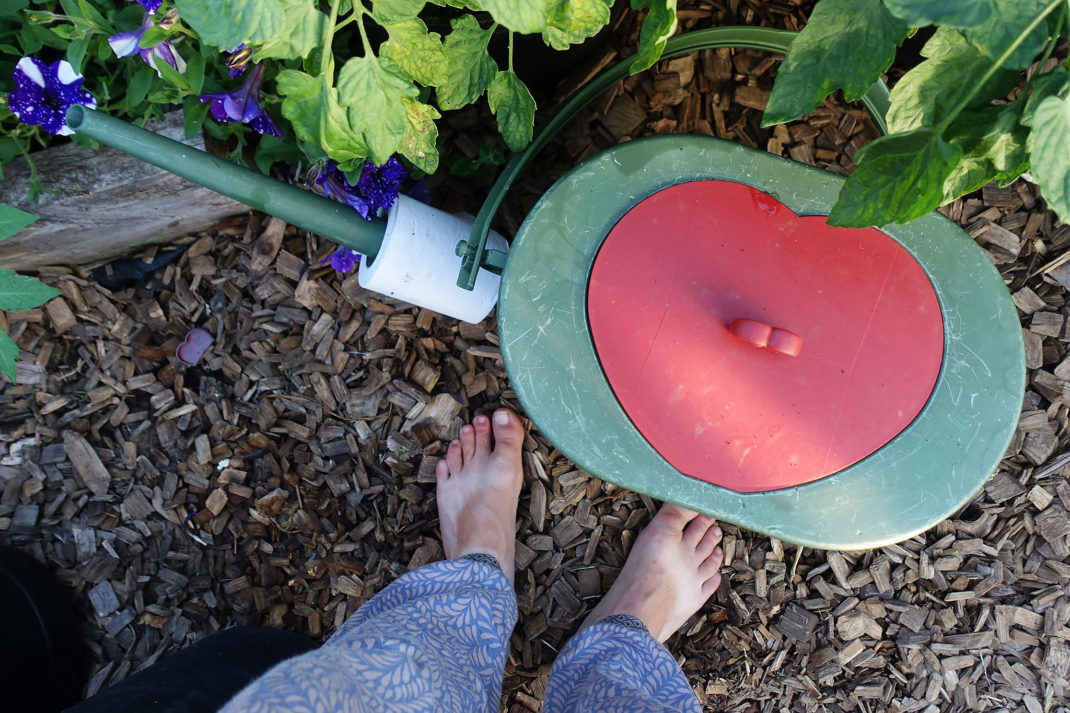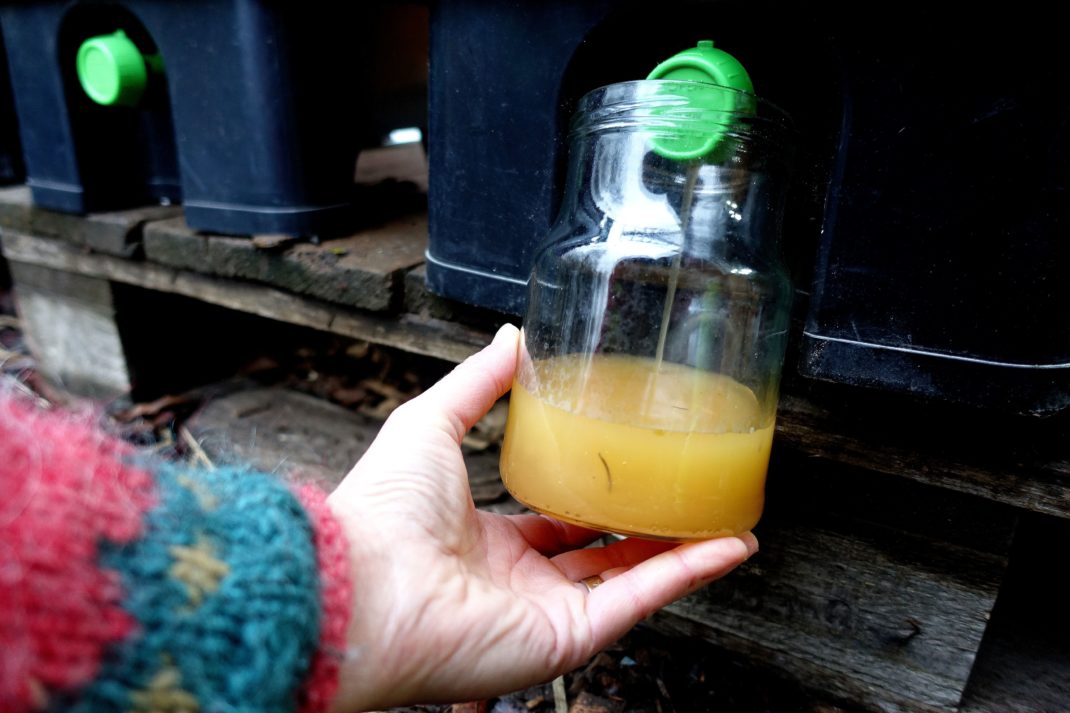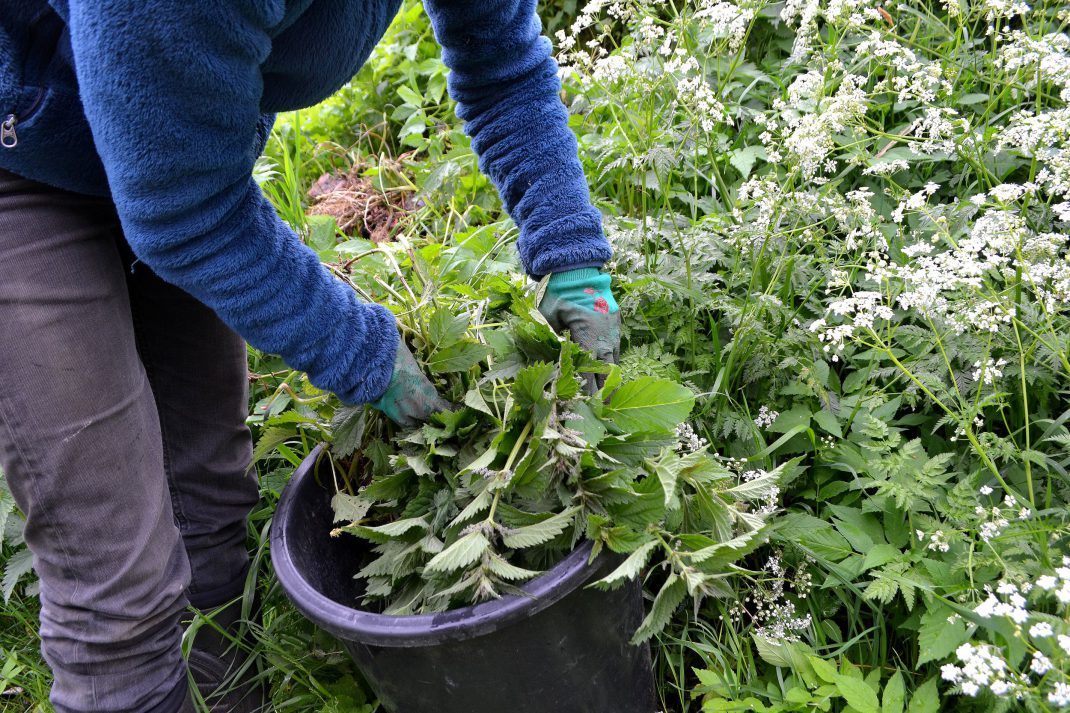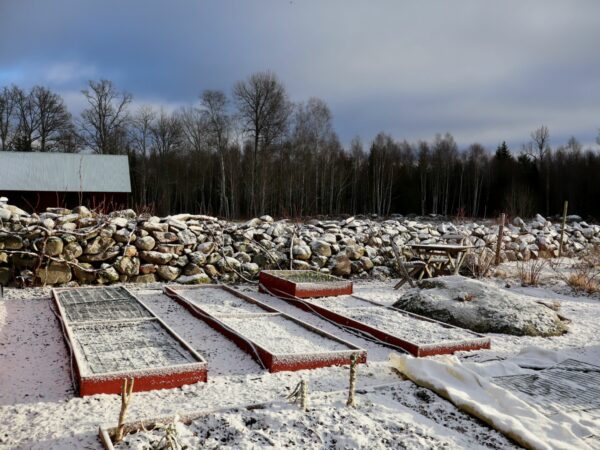4 organic fertilizers for your garden
I use a few different organic fertilizers in my garden, even in winter. Adding some liquid organic fertilizers is a great way to prepare the soil for new sowings. Here are my favorite organic fertilizers.

A watering can shaped like a potty helps me collect urine, this is one of the organic fertilizers I use here in my garden.
As you might have noticed by now, I always try to fertilize my soil with liquid fertilizer as a preparation for the winter sowings. The goal is to give the soil a little boost before it's time to sow again. I recently got some questions about alternatives to bokashi leachate which I have been using quite a lot in the beds outside. That's why I wanted to write a bit more about my favorite organic fertilizers.
But first of all, why do I fertilize right now? Well, I'm sure that there are plenty of opinions about when you are supposed to do it. I simply do it because I find it practical since I have my habits when it comes to sowing and harvesting.
Quick start in spring
The plants I grow in winter develop fast in spring. Let's say that the spinach starts growing in January-March and gets ready to harvest in April-May. This gives me a very small window of time to fertilize and take care of the plants. Leafy greens really aren't the most high-maintenance plants of course, but they do grow very nicely in well-fertilized soil. So, I know for sure that I will get better results if I support the soil with organic fertilizers. I try to fertilize a little bit before sowing, and then another one or two times before I harvest.
Harvesting the traditional way, by for example burying manure in the soil, gives the soil a texture which I find hard to deal with when sowing in winter. The seeds are small and I often sow many seeds in a small space. I want to give my seeds the best possible treatment, so nice and airy soil is optimal. I mainly fertilize by burying old plant parts in fall, and then I add a little liquid fertilizer before I sow. This works so well! I can succeed if I miss one of these steps too of course, but then it all comes down to how nutritious the soil was from the beginning. The soil in my beds outside is quite healthy since I make a habit out of mulching. You can read more about this in my articles about soil analysis, part 1-3.
Liquid fertilizer
Mainly using liquid fertilizer actually works really well. I have watering cans underneath all of the gutters on our house, not having to carry water from inside is great. I simply take the can, add the liquid fertilizer of my choice, water, wait to let the soil absorb it and then I rake the soil before sowing.
I don't use any store-bought fertilizers at all. I simply don't need them. We get everything we need here, even though we don't have any animals that produce manure. And no, the soil doesn't suffer for it. We manage just fine with the fertilizers we have access to. Again, feel free to check out my articles about the soil analysis I did in my garden to learn more.
My 4 favorite liquid and organic fertilizers:
Diluted urine
There are plenty of other names for this fertilizer, but I just call it what it is to avoid any confusion. Simply pee in a jar, potty, bucket or similar and add to a watering can.
They say that one person's total production of urine during a year contains enough nutrients for all of the vegetables that a person needs for the same period of time. Urine simply contains so many nutrients that provide the soil with everything it needs.
A general rule is to use one part urine and ten parts water. This can be difficult to stick to every time though. So, simply add a little bit to your can and go from there. The only thing you need to think about is to not make the fertilizer too strong. You probably don't need to worry much about this in winter though. But try to keep the concentration low if you feel unsure.
You can save urine for later if you want to, but I don't recommend it. I can write more about why I know for sure how old urine smells, but I will spare you the details for now. Only use fresh urine!
Read more: Fertilize with diluted urine indoors

I'm getting some leachate from the bokashi compost bins. The fluid doesn't smell very nice but it does wonders for the soil.
Bokashi and bokashi leachate
Bokashi leachate is the fluid that develops inside the container where the bokashi compost is fermented. It's said to be super beneficial for the soil, adding both nutrients and little microbes. This is one of my favorite organic fertilizers.
The leachate is drained from a special composting bucket with a spigot and you can save it in the fridge for a while before using it. The leachate is extremely sour so make sure to dilute it properly. Use around 1 part bokashi leachate and 100 parts water. You can use a higher concentration of leachate if you water soil where there are no plants growing at the time.
The bokashi compost is really beneficial too, of course, it provides the soil with plenty of nutrients as well as food for thousands of little earthworms that help transform the kitchen scraps into beautiful nutrient-rich soil. You can bury the bokashi during mild winters, but it's harder to do when the soil is frozen of course.
More about bokashi: Bokashi compost in my garden
Chicken manure leachate
You can make leachate from many different kinds of animal manure. Simply put the manure in water and let the manure dissolve in the can. The nutrients will transfer to the water and then to the soil when you water it.
I especially like using chicken manure, you can use it both fresh and as pellets. Try to add around 2 cups (around 5 dl) of chicken manure pellets for 2.5 gallons (10 liters) of water. Put the manure in the water, let it sit for a few hours or so, stir and then strain before using the leachate in your beds. I usually just add chicken manure I get from friends.

I make nettle water simply by allowing nettles to rot in a bucket of water.
Nettle water
There are no nettles or other nitrogen-rich plants that I can make leachate from in winter, but it's a good option for other seasons of course.
Plant-based leachate is made by simply letting old leaves rot in water. It takes around two weeks for the plants to release the nutrients to the water. Dilute it 1 part leachate and 10 parts water. It smells really bad for a few hours, but that's just how it is. It's worth it though!
I know there are other great liquid fertilizers out there, for example, comfrey liquid. Which organic fertilizers do you use? Comment below!
/Sara Bäckmo



Leave a Reply
You must be logged in to post a comment.